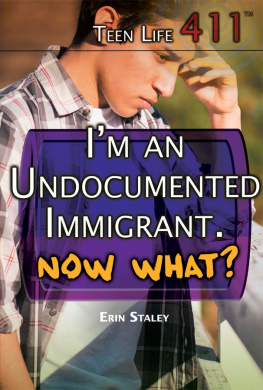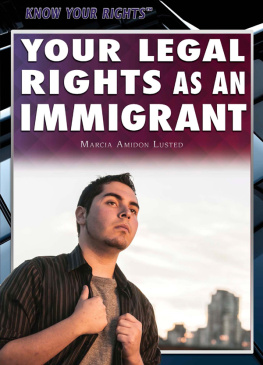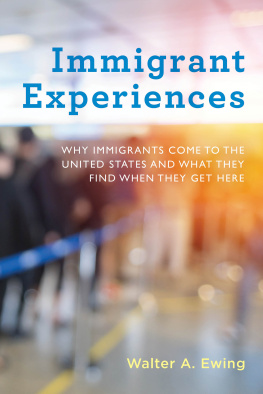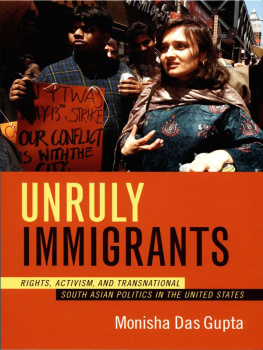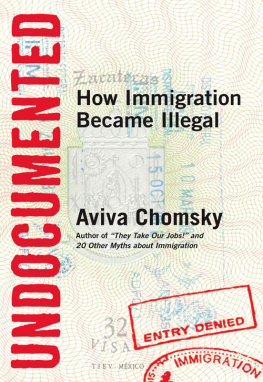
Family Activism
Latinidad
Transnational Cultures in the United States
This series publishes books that deepen and expand our knowledge and understanding of the various Latina/o populations in the United States in the context of their transnational relationships with cultures of the broader Americas. The focus is on the history and analysis of Latino cultural systems and practices in national and transnational spheres of influence from the nineteenth century to the present. The series is open to scholarship in political science, economics, anthropology, linguistics, history, cinema and television, literary and cultural studies, and popular culture and encourages interdisciplinary approaches, methods, and theories. The series grew out of discussions with faculty at the School of Transborder Studies at Arizona State University, where an interdisciplinary emphasis is being placed on transborder and transnational dynamics.
Matthew Garcia, Series Editor, School of Historical, Philosophical, and Religious Studies and Director of Comparative Border Studies
For a list of titles in the series, see the last page of the book.
Family Activism
Immigrant Struggles and the Politics of Noncitizenship
Amalia Pallares
Rutgers University Press
New Brunswick, New Jersey, and London
Library of Congress Cataloging-in-Publication Data
Pallares, Amalia, 1965
Family activism : immigrant struggles and the politics of noncitizenship / Amalia Pallares.
pages cm (Latinidad: transnational cultures in the United States.)
Includes bibliographical references and index.
ISBN 9780813564579 (hardback) ISBN 9780813564562 (pbk.) ISBN 9780813564586 (e-book)
1. Immigrant familiesUnited States. 2. FamiliesPolitical aspectsUnited States. 3. United StatesEmigration and immigration. 4. United StatesEmigration and immigrationGovernment policy. 5. ImmigrantsUnited StatesSocial conditions. 6. Immigrant familiesIllinoisChicago. 7. ImmigrantsIllinoisChicagoSocial conditions. 8. Chicago (Ill.)Emigration and immigration. I. Title.
JV6456.P35 2014
325.73dc23
2014014277
A British Cataloging-in-Publication record for this book is available from the British Library.
Copyright 2015 by Amalia Pallares
All rights reserved
No part of this book may be reproduced or utilized in any form or by any means, electronic or mechanical, or by any information storage and retrieval system, without written permission from the publisher. Please contact Rutgers University Press, 106 Somerset Street, New Brunswick, NJ 08901. The only exception to this prohibition is fair use as defined by U.S. copyright law.
Visit our website: http://rutgerspress.rutgers.edu
To Elvira, Flor, Rosi, Fanny, and all the families in the struggle
Contents
As I reflect on eight years of fieldwork and the hundreds of people I have met in the process of researching and writing this book, I return to the images of four undocumented mothers whose different circumstances have deeply informed my quest for understanding what the immigrant movement seeks, and what would be considered socially just outcomes in a context of diverse and differentiated claims.
Elvira Arellano, who motivated me to embark on this project, was a twenty-eight-year-old activist from Michoacn and the mother of seven-year-old citizen Saul when she sought sanctuary in a Methodist church in 2006, stating that it was inhumane to separate a mother and child and that deporting her was like deporting her son. One year later she was deported after leaving the church on a tour of different sanctuary churches throughout the country. Today Elvira is an activist in Mexico, working for the rights of Central American and Mexican immigrants and deportees.
Flor Crisstomo was twenty-nine years old when she followed in Elviras footsteps and sought sanctuary in the same church in January 1998. An activist with Centro Sin Fronteras (CSF) and a factory worker of Zapotec origin, she was a single mother of three small children in Mexico when she decided to migrate alone in order to support her children. While she had no citizen children, she linked her claim to remain in the United States to her economic displacement as an indigenous woman in Mexico as a consequence of the North American Free Trade Agreement (NAFTA). Flor left sanctuary in October 2008 and remains in the United States.
Rosi Carrasco, fifty-four, works in a Chicago social service organization and has deep ties to several immigrant rights organizations. She has lived in the United States for seventeen years, since she and her daughters followed her husband, who had a job and the promise of legalization by an employer, which never came to fruition. She is a member of an entirely undocumented family with an extensive trajectory of activism. Her husband, Martn, is the founder of a workers organization, and her daughters, Tania and Ireri, are founding members of the Immigrant Youth Justice League (IYJL). All four family members have lobbied; organized marches, protests, and rallies; and personally participated in acts of civil disobedience. In recent years, Rosi has supported the youth movement and worked intensively with parents of young activists engaging in civil disobedience. She has recently founded an organization of undocumented immigrants and allies of many ages.
Fanny Lpez is a twenty-five-year-old activist who came to the United States as a child. The recent recipient of a masters degree from the University of Chicago, Fanny has been active in two youth organizations, Latino Action Youth League (LOYAL) and IYJL, and is now a founding member of the West Suburban Immigrant Collective (SWIC). She has participated in coming-out events and engaged in civil disobedience. Married to David Martinez, a U.S. citizen who is a veteran of the Afghan war, she had baby David in October 2012 and is currently working for a large immigrant rights organization.
All of these undocumented mothers have different claims of belonging that are based on or strengthened by their motherhood. State practices of categorizing and differentiating among immigrants lead to decisions that indicate that some people, and some mothers, are more worthy than others. If you believe only mothers of U.S. citizens should be have the right to remain in the United States, that means that Elvira and Fanny would qualify, and that Flor and Rosi should be excluded. If you consider extended length of time in the United States as your criterion, Rosi and Fanny would remain, and Flor and Elvira would be excluded. If you believe that only those immigrants who were brought here as children should remain, only Fanny would fall under this description. But to what extent do these categorizations make sense, and which ones should be used? Can they be questioned altogether? Are any of these mothers more deserving than the others?
This book explores how different immigrant movement activists and organizers have constructed and reinforced but also challenged and redefined existing distinctions and categorizations of families facing separation due to deportation. I look at the malleability and flexibility of the notion of family as it comes to represent and express different ideologies, goals, and strategies in the movement. Elvira, Flor, Rosi, and Fanny, and thousands like them, have all participated in the creation of some form of family activism while simultaneously struggling for political recognition and agency in a context in which the political voices of the undocumented have been muffled.


